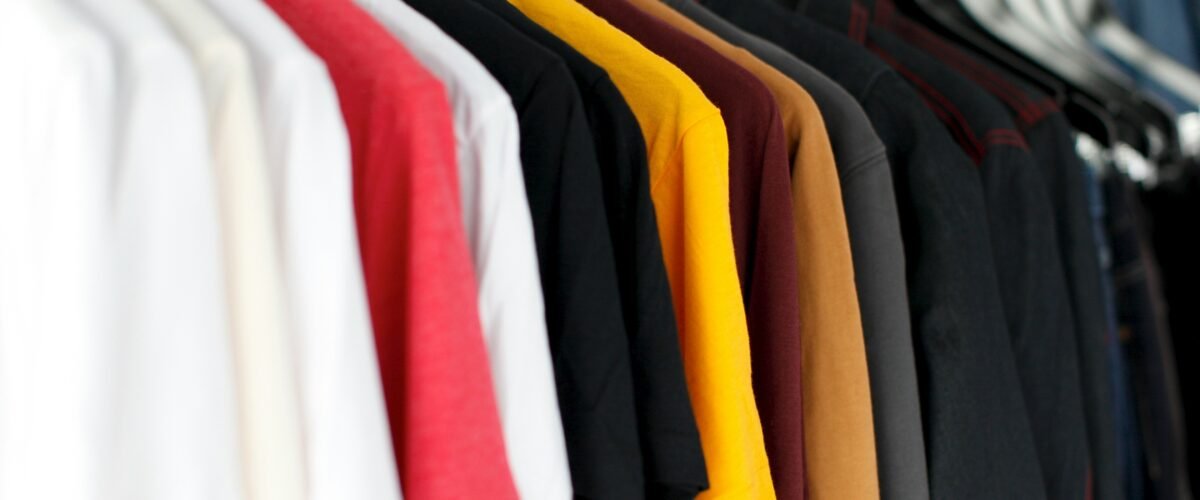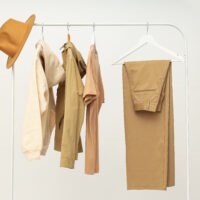The Benefits of Slow Fashion Investments – Explore EcoFashions
Investing in slow fashion pieces offers hidden advantages beyond style. These garments prioritize quality and durability, reducing the need for frequent replacements and minimizing waste. Ethical production practices ensure fair treatment for workers, while timeless designs offer versatility across seasons. By choosing slow fashion, consumers contribute to a more sustainable and ethical fashion industry while cultivating a personal style that reflects their values.
What is slow fashion?
Slow fashion is a movement that champions a thoughtful, unhurried approach to clothing production and consumption. It’s the antithesis of fast fashion, which prioritizes rapid manufacturing, frequent trend cycles, and excessive consumption of inexpensive, disposable garments.
Slow fashion focuses on quality over quantity, advocating for well-made, timeless pieces designed to last for years. It celebrates craftsmanship, sustainability, and ethical production practices that respect the environment and the rights of garment workers.
The Principles of Slow Fashion
At its core, slow fashion is built on the following principles:
- Mindful Production
- Quality Over Quantity
- Timeless Design
- Conscious Consumption
Mindful Production Slow fashion brands prioritize sustainable and ethical manufacturing processes that minimize harm to the environment and ensure fair treatment and living wages for garment workers. This often involves using eco-friendly materials, implementing zero-waste practices, and maintaining transparency in their supply chains.
Quality Over Quantity Instead of churning out mountains of cheaply made, disposable garments, slow fashion brands focus on producing fewer, higher-quality pieces designed to stand the test of time. These garments are crafted with care using durable, long-lasting materials and superior construction techniques.
Timeless Design Slow fashion emphasizes timeless, versatile designs that transcend fleeting trends. These classic, well-designed pieces can be worn and enjoyed for years, reducing the need for frequent wardrobe replacements and minimizing fashion waste.
Conscious Consumption Slow fashion encourages a more mindful approach to consumption, urging consumers to invest in fewer, better-quality items and to think critically about their purchases. It promotes practices like mending, upcycling, and buying secondhand to extend the life of garments and reduce waste.
Why slow fashion is important
Embracing slow fashion offers numerous benefits for both consumers and the planet.
Environmental Sustainability The fast fashion industry is a major contributor to environmental degradation, responsible for vast amounts of pollution, water consumption, and greenhouse gas emissions. By supporting slow-fashion brands that prioritize sustainable practices, you can significantly reduce your environmental impact and help protect our planet for future generations.
Ethical Production Slow fashion brands are committed to ethical production practices, ensuring that the people who make our clothes are treated fairly and paid living wages. By choosing slow fashion, you can feel good knowing that your purchases aren’t supporting exploitative labor practices.
Quality and Longevity Slow-fashion garments are designed to last, providing better value for your money in the long run. Instead of constantly replacing cheaply made fast fashion items, you can invest in high-quality pieces that will remain in your wardrobe for years to come, reducing waste and saving you money in the long run.
Personal Expression Slow fashion encourages a more intentional and personal approach to style. By curating a thoughtful, timeless wardrobe, you can express your unique identity and develop a deeper connection with the clothes you wear, fostering a sense of contentment and satisfaction.
Slow fashion movement
Ready to join the slow fashion movement? Here are some tips to get started:
Invest in Quality When shopping for new clothes, prioritize quality over quantity. Look for well-made garments crafted from durable, sustainable materials that will stand the test of time. Pay attention to construction details and opt for classic, versatile pieces that can be worn in multiple ways.
Support Ethical Brands Research and support slow-fashion brands that align with your values and prioritize ethical and sustainable practices. Look for brands that are transparent about their supply chains, use eco-friendly materials, and treat their workers fairly.
Buy Secondhand Embrace the thrill of the hunt and shop secondhand when possible. Thrifting and vintage shopping are great ways to find unique, high-quality pieces while reducing waste and supporting a more circular fashion economy.
Care for Your Clothes Proper care and maintenance can significantly extend the lifespan of your garments. Learn basic mending and repair skills, follow washing instructions carefully, and invest in quality hangers and storage solutions to keep your clothes looking their best for years to come.
Rethink Your Wardrobe Curate a capsule wardrobe of timeless, versatile pieces that can be mixed and matched to create numerous outfits. This approach not only reduces clutter and waste but also simplifies your daily routine and helps you develop a more intentional and meaningful relationship with your clothes.
Slow fashion is more than just a trend; it’s a mindful approach to style that prioritizes sustainability, ethics, and quality over fleeting trends and excessive consumption. By embracing slow fashion, you can make a positive impact on the planet and the people who make our clothes, all while cultivating a deeper appreciation for the art of fashion and personal expression. Join the movement and experience the joy of a mindful, sustainable style.










